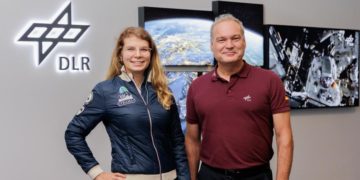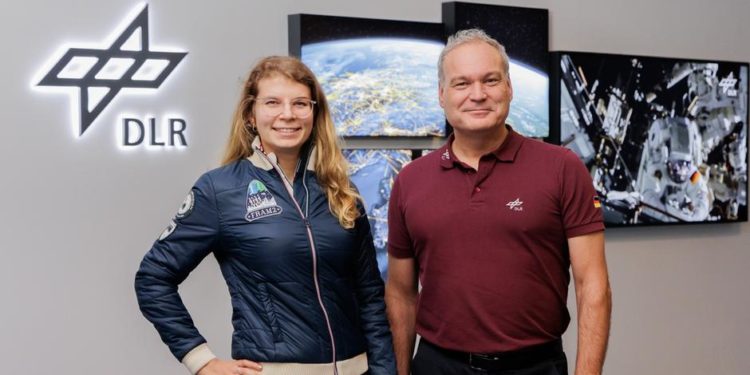Rabea Rogge made history on Monday as the first German woman in space, launching aboard a on the first-ever crewed mission to fly directly over Earth’s polar regions.
The days-long, privately funded orbital mission launched aboard a SpaceX Crew Dragon capsule atop a Falcon 9 rocket at 9:46pm ET on Monday (0146 GMT Tuesday) from NASA’s Kennedy Space Center, in Florida.
Cheers erupted in SpaceX control room as the powerful rocket soared toward Earth’s North and South Poles.
The Fram2 mission sent four private astronauts into polar orbit, the company’s livestream showed. will orbit Earth from pole to pole, a trajectory in which no humans have traveled before.
The mission is led by Chinese-born Maltese entrepreneur Chun Wang. The other members of the crew include Norwegian filmmaker Jannicke Mikkelsen, Australian polar guide Eric Philips and Rogge, a robotics researcher.
Spaceship on an untraveled path
Fram2, named after the famous 19th-century Norwegian ship built for Arctic and Antarctic expeditions, aims to conduct groundbreaking experiments, including the first human X-ray in space and mushroom cultivation in microgravity.
After returning to Earth, the crew aims to exit the spacecraft without additional medical assistance, helping researchers assess astronauts’ ability to perform basic tasks post-spaceflight.
“With the same pioneering spirit as early polar explorers, we aim to bring back new data and knowledge to advance the long-term goals of space exploration,” mission commander Chun Wang said before the launch.
trained for eight months, including an Alaskan wilderness expedition to simulate living in close quarters under harsh conditions.
A polar orbit allows global Earth observation, typically used for climate and reconnaissance satellites.
This marks the first time astronauts have flown directly over both poles, a path untraveled in 64 years of human spaceflight.
Edited by John Silk
The post First German woman in space on historic SpaceX polar orbit mission appeared first on Deutsche Welle.


















